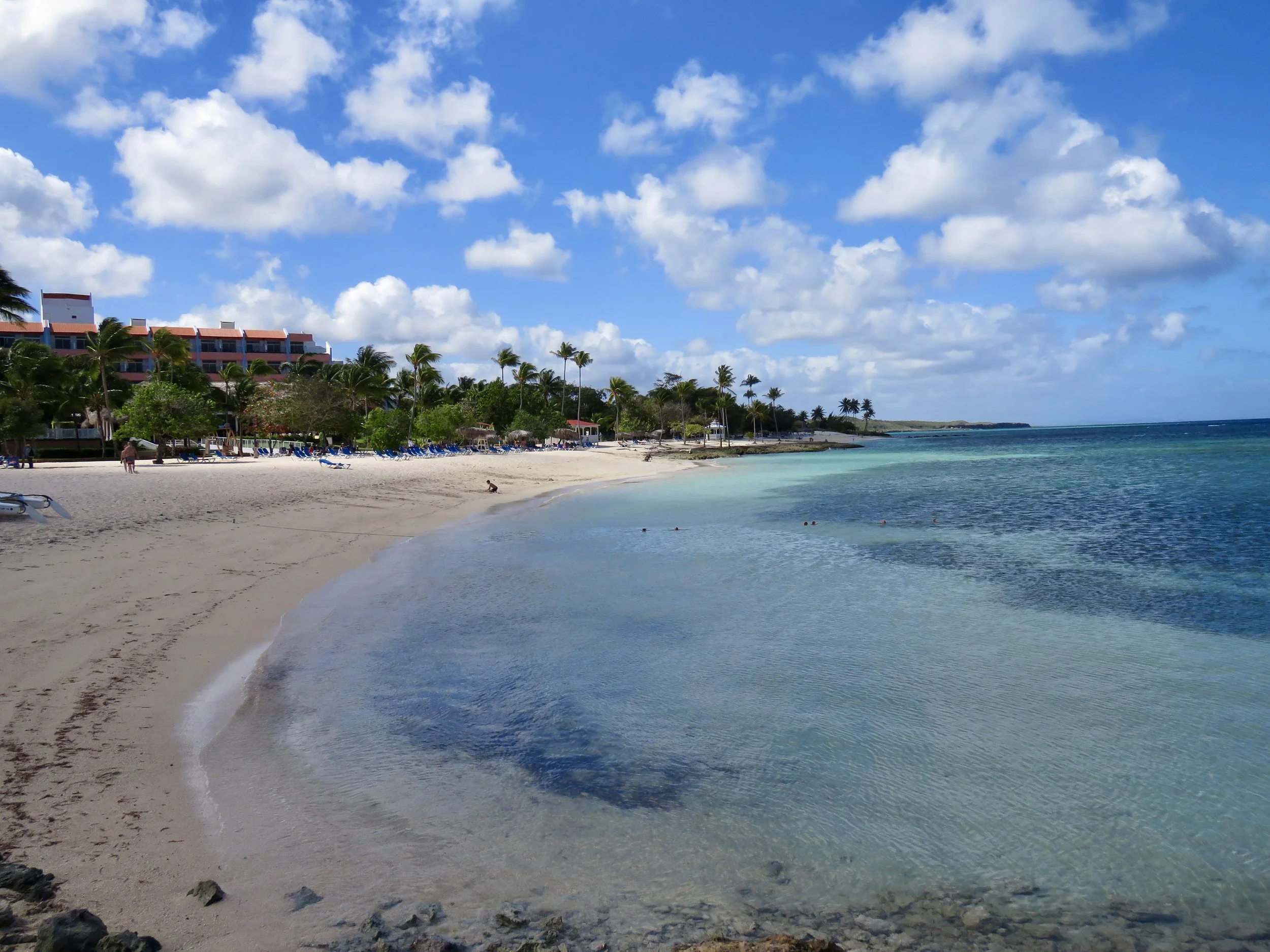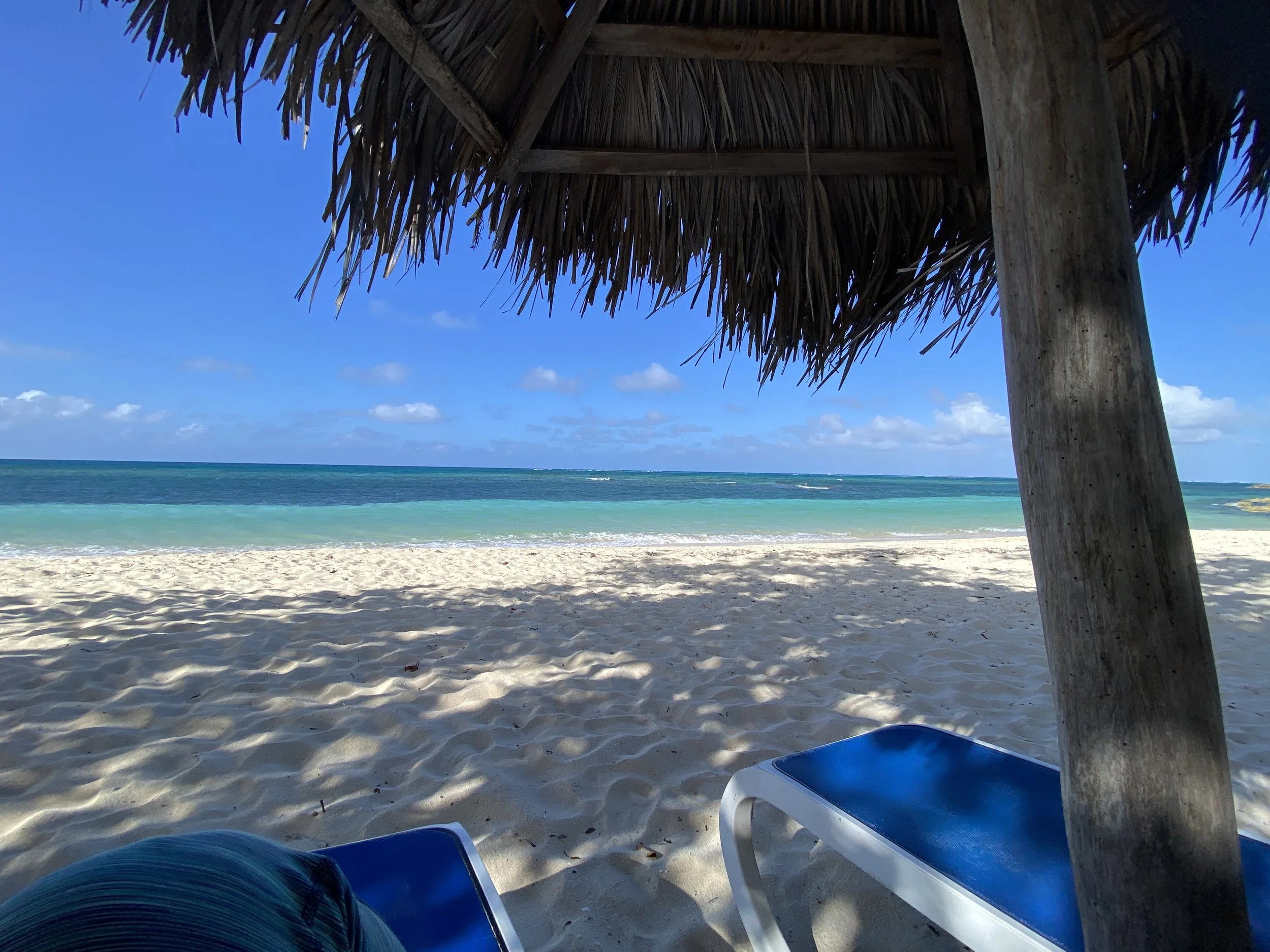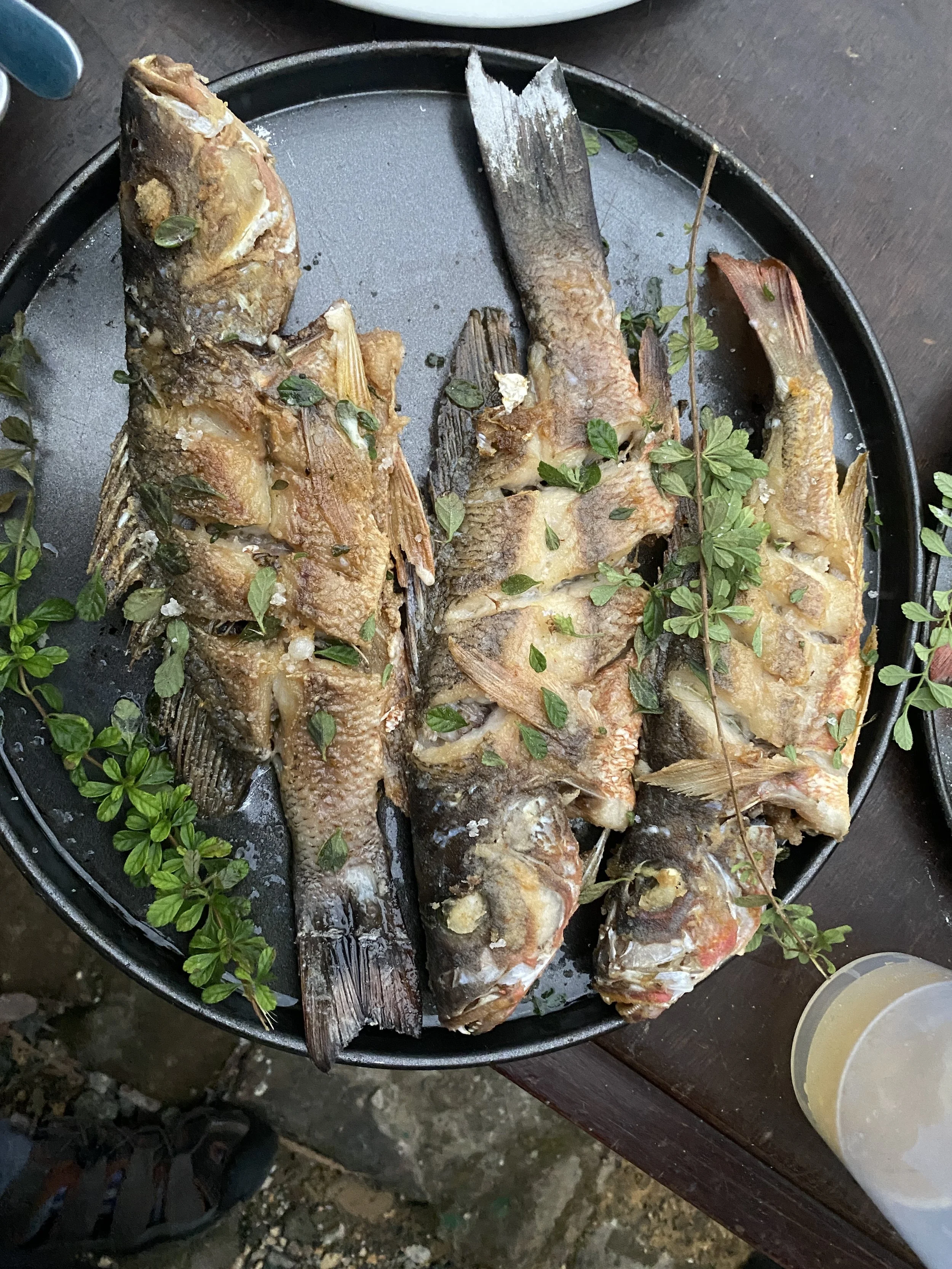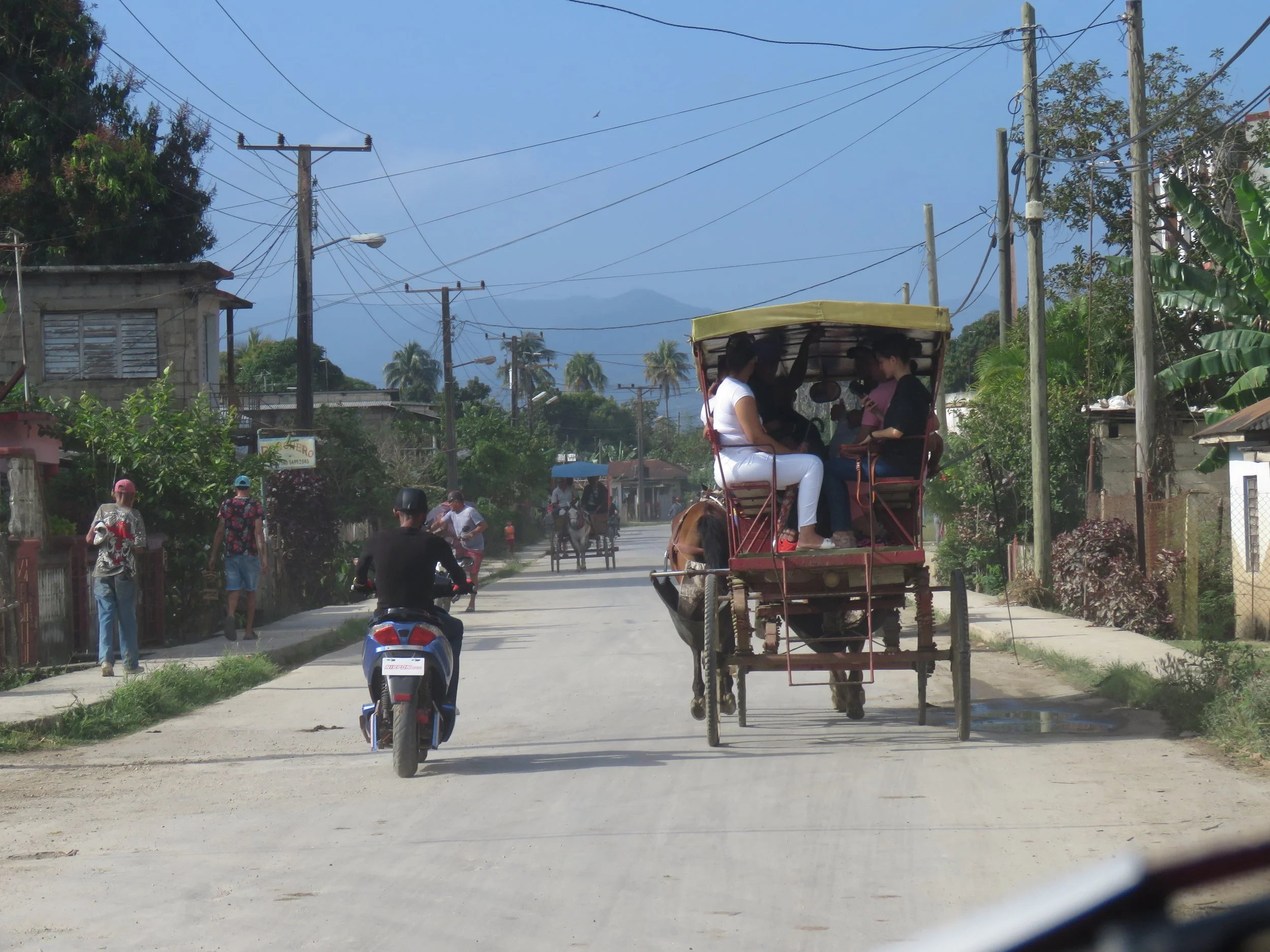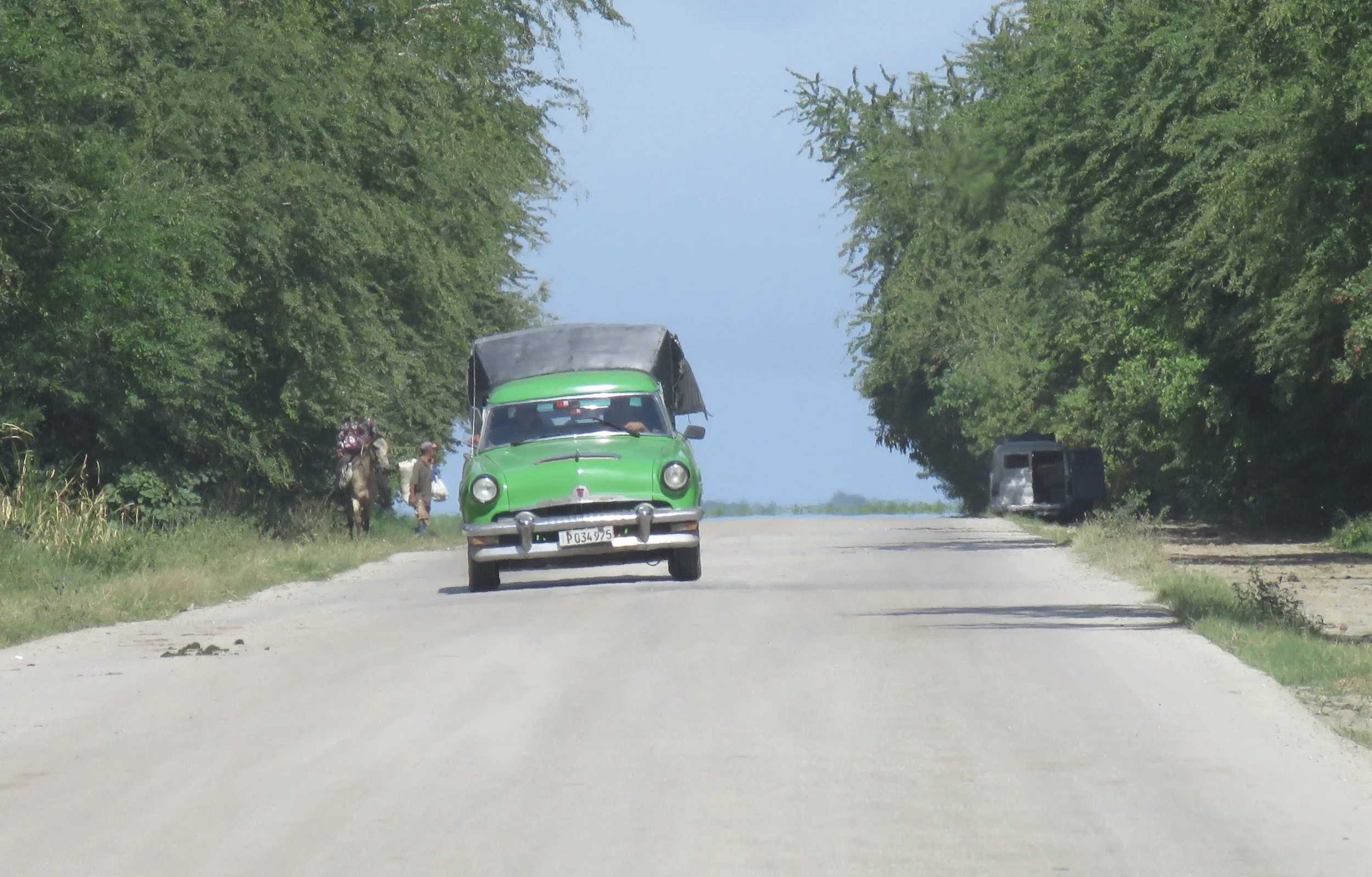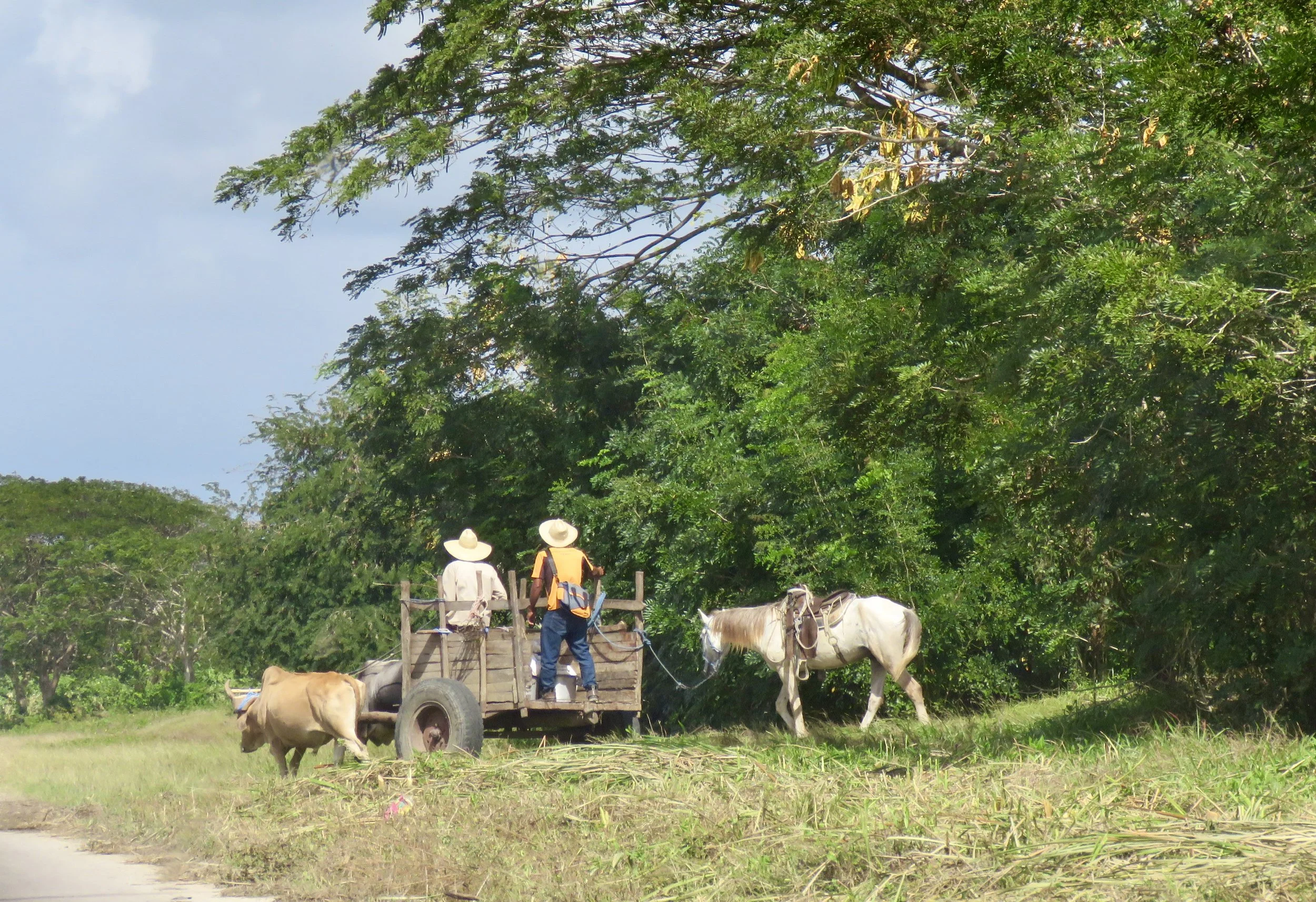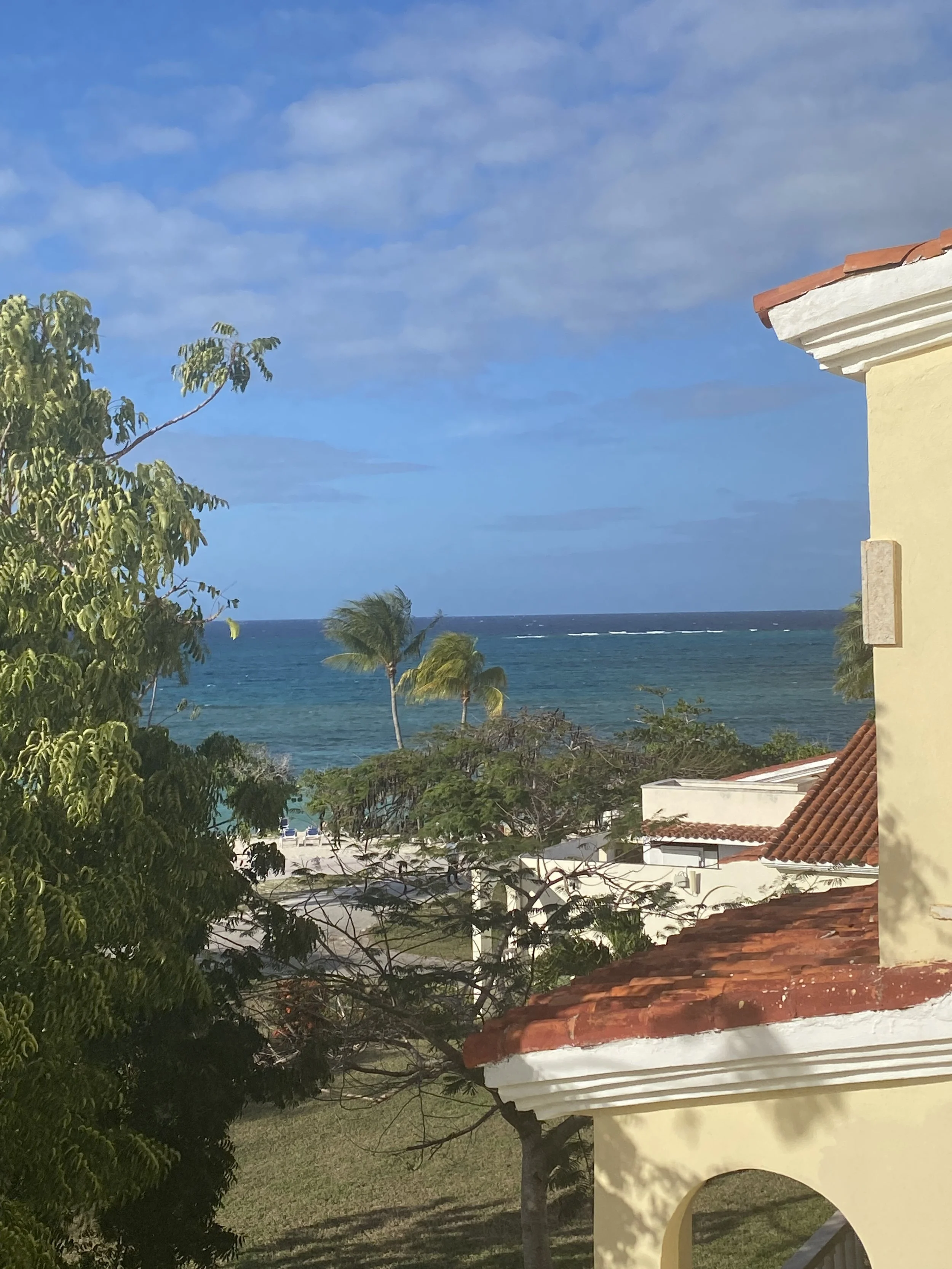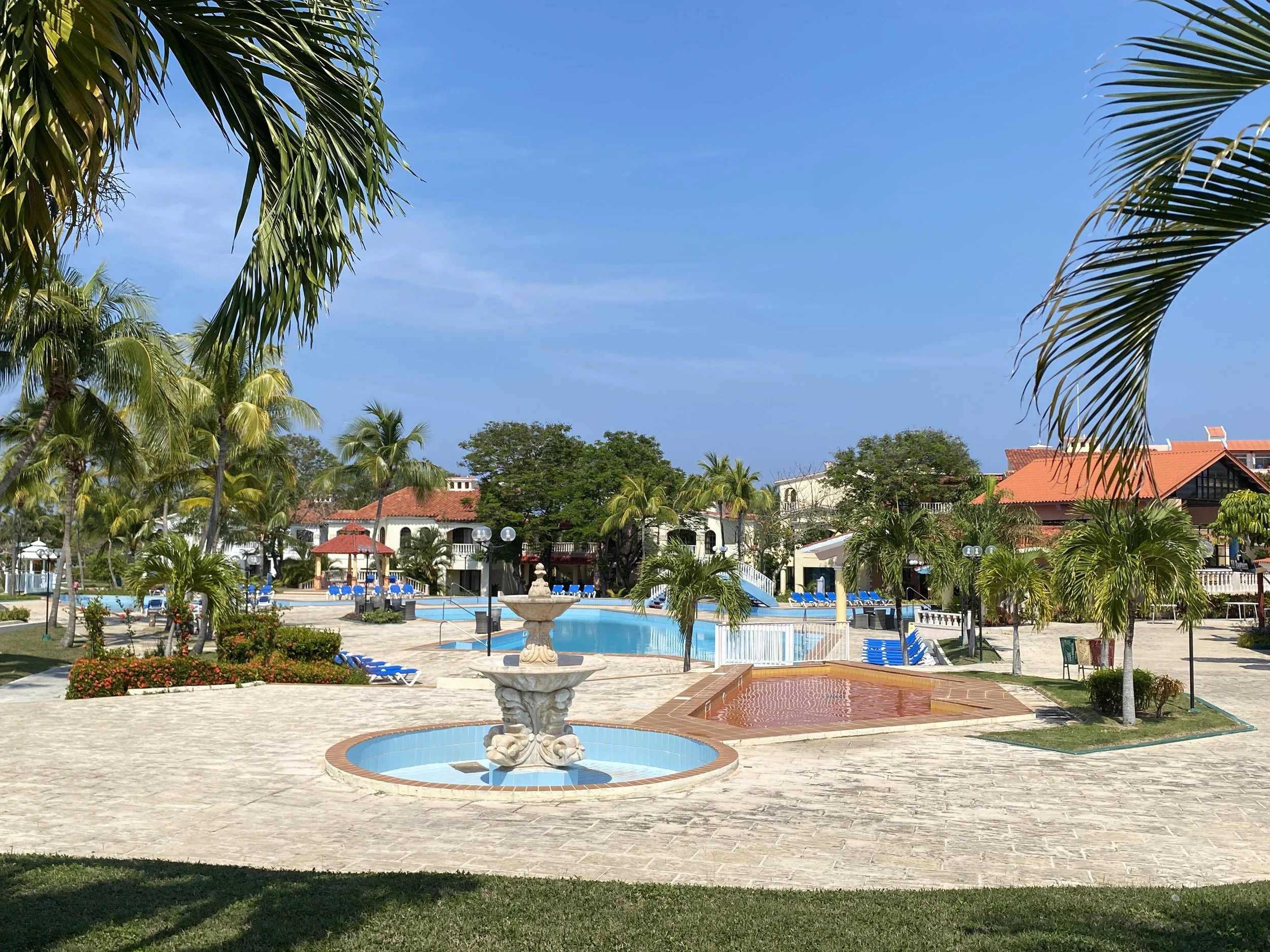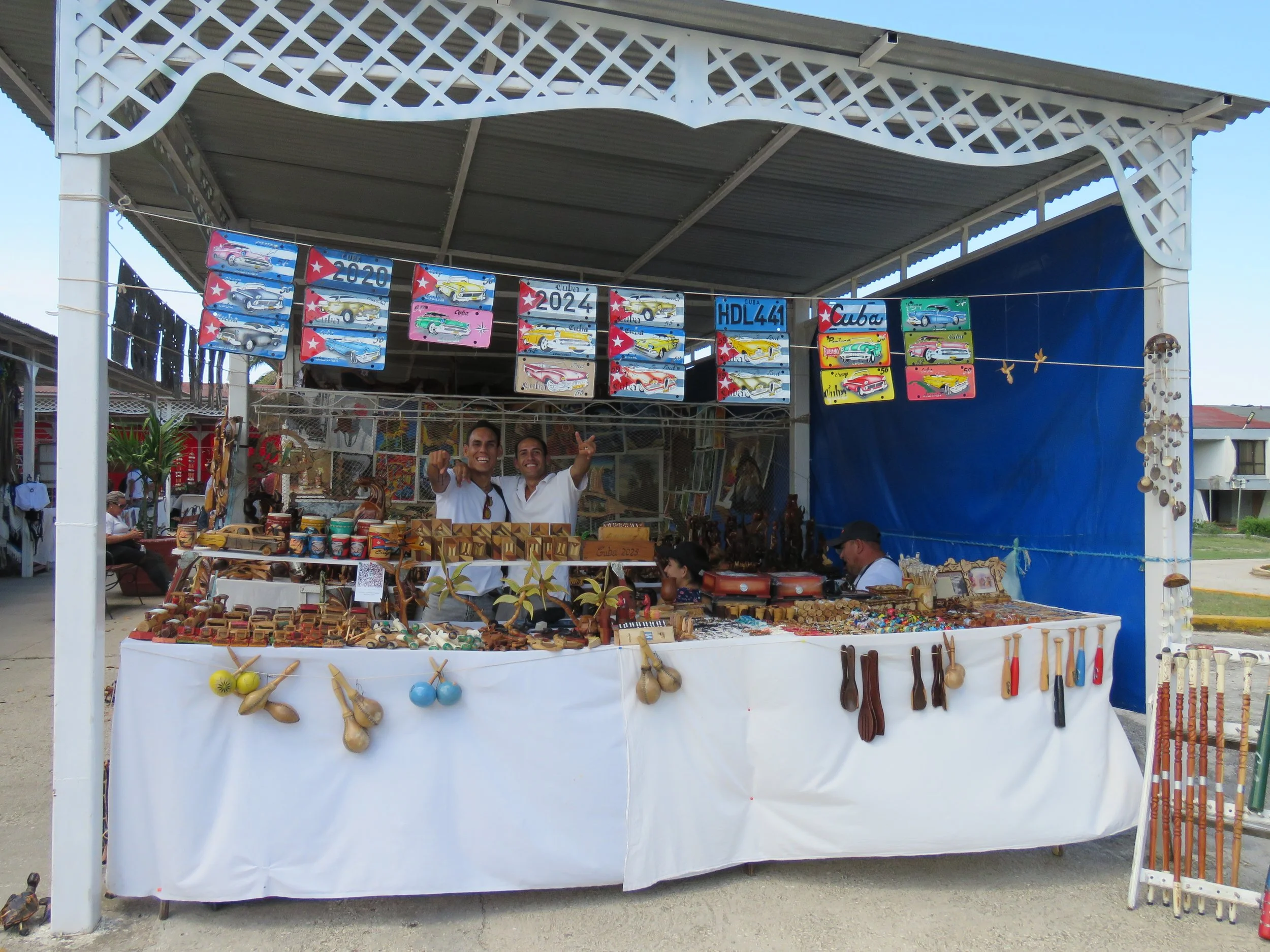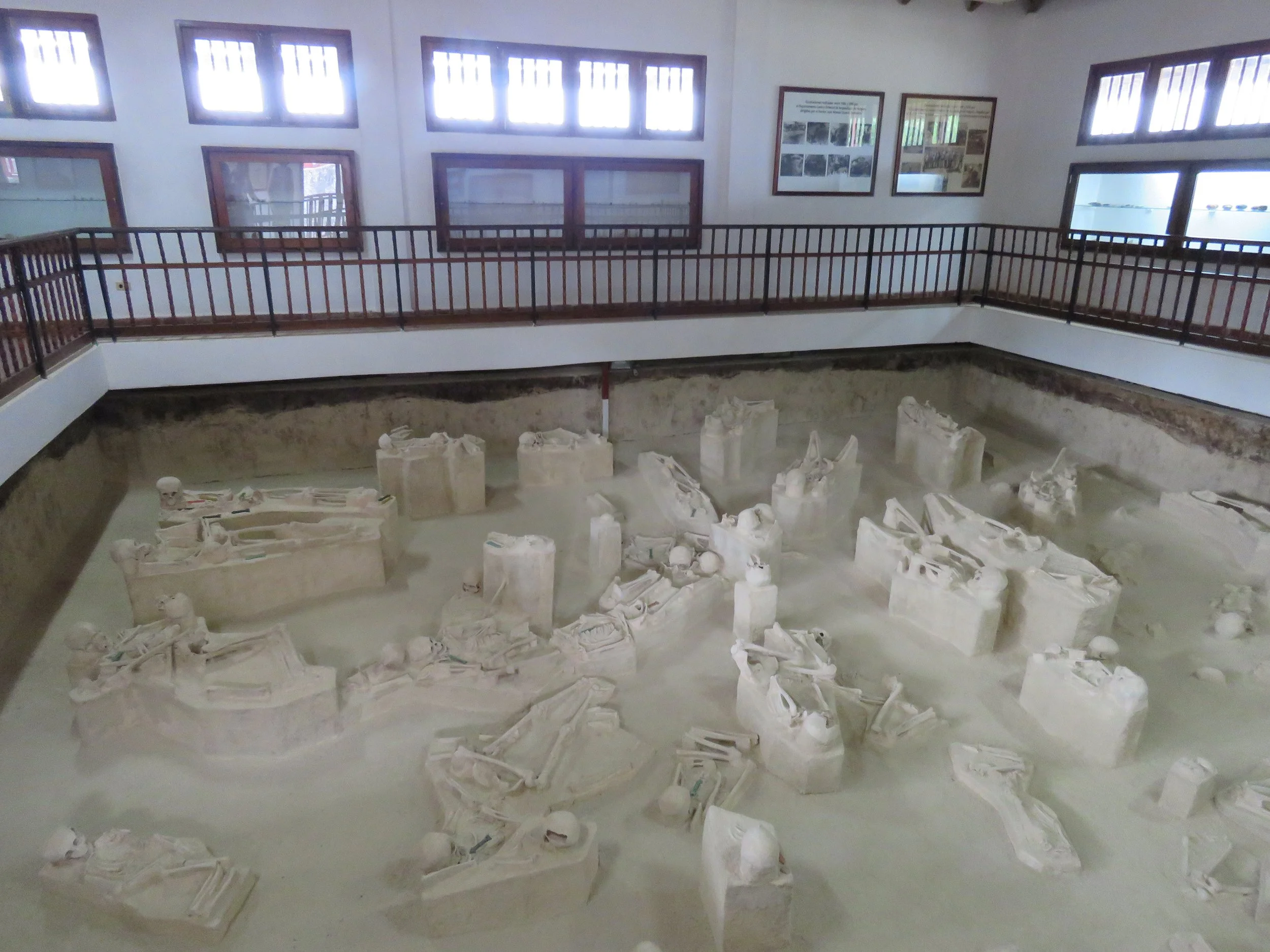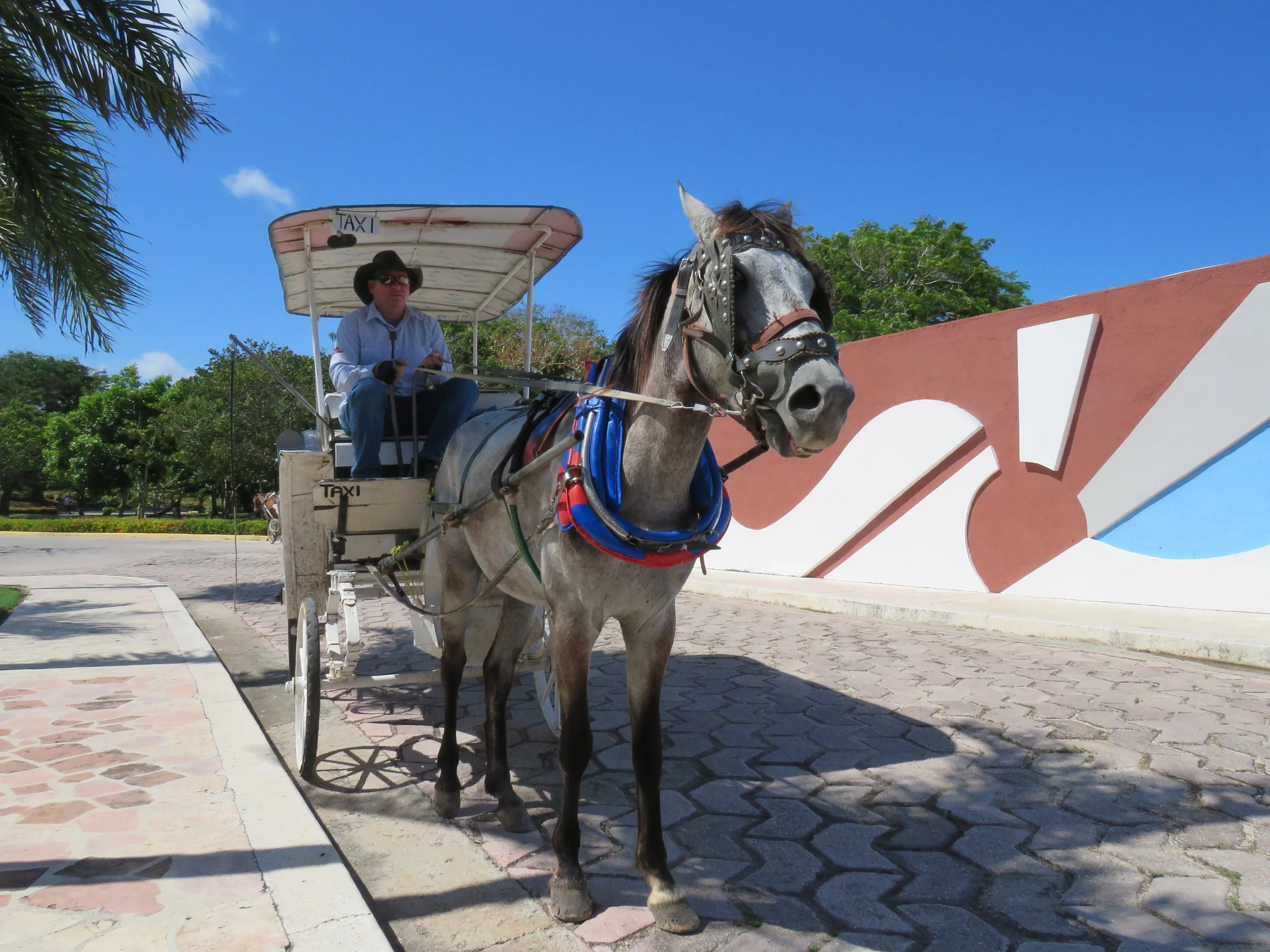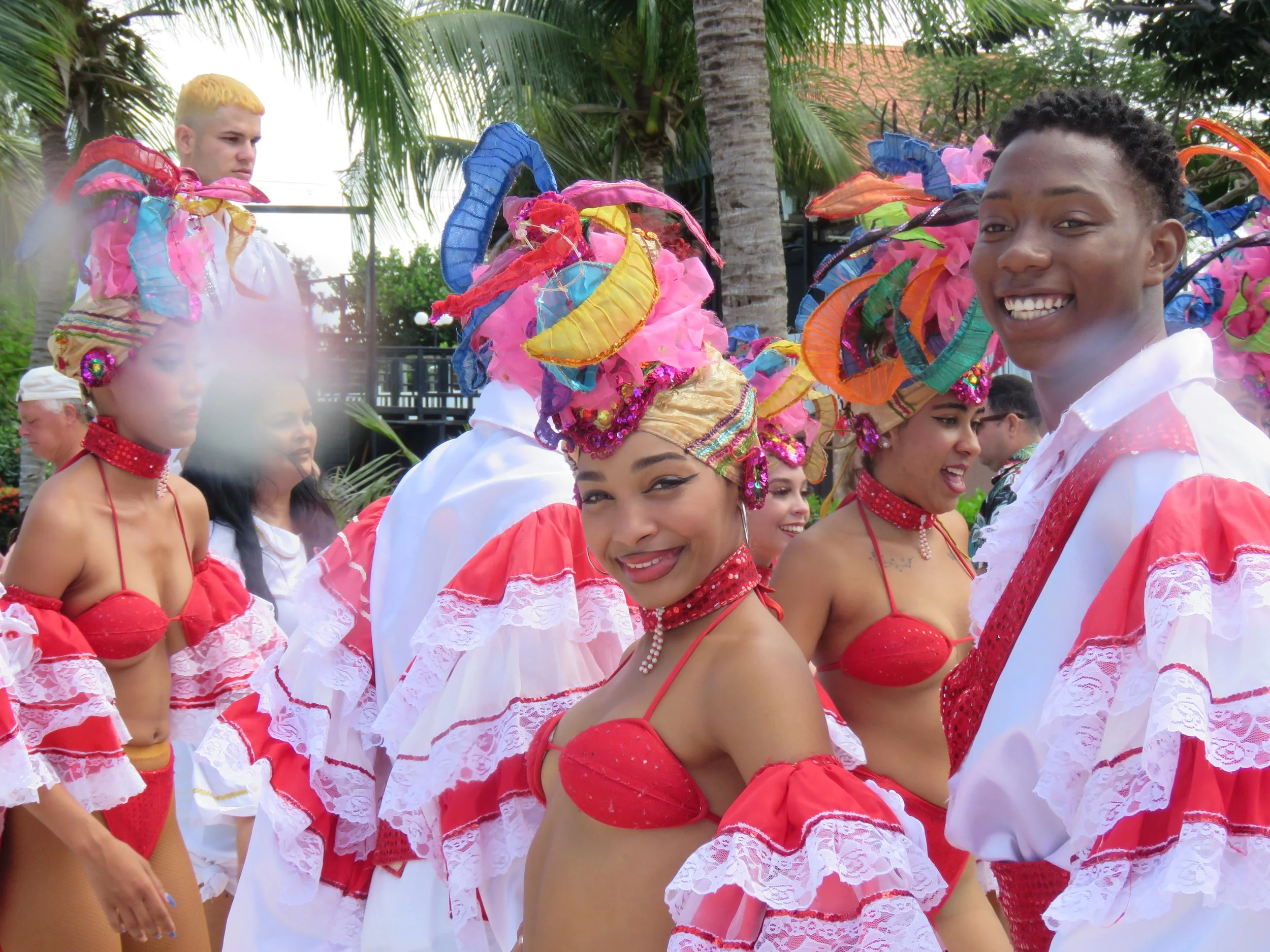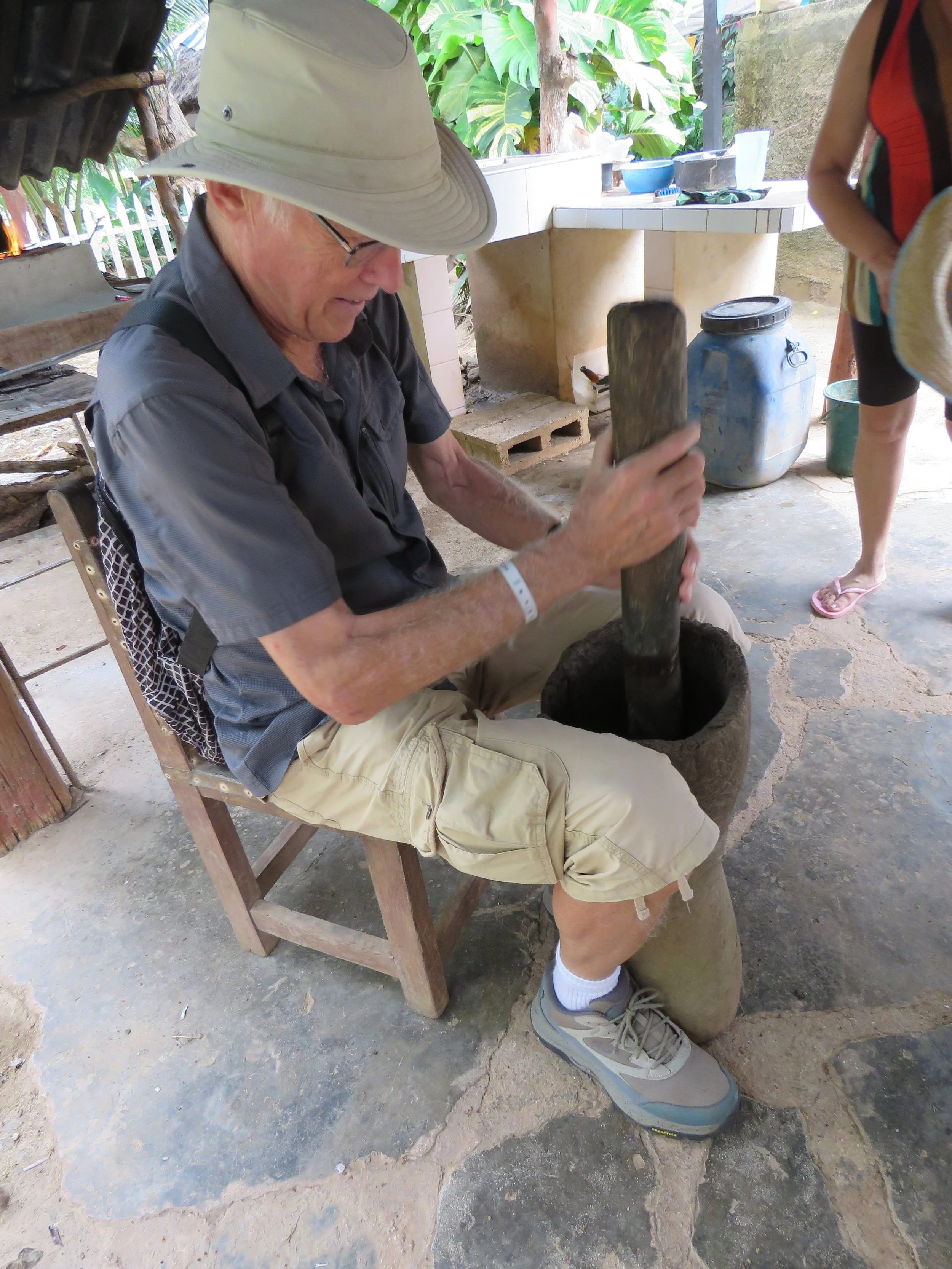Resorts can be paradise…
Fish from the local bay. We also ate yucca roots.
After a month in a small Cuban village, we were hungry. We had intestinal problems from the water. And we finally decided that we couldn’t stay in the village where we had booked a house for two months. The house was nice but there was no wifi, almost no power and especially the lack of food was getting to us.
On the plane from Canada we had chatted with a couple that often spent the winter in Cuba, but in a resort. Not in “the real country”. It had occured to me, even then, that we may need to ask them for advise and so I had obtained their email address.
Now the time had come for us to find out about the resort where they were staying and if we might move there. We’re not really into all-you-can-eat-and-drink resorts but, after a month on our own, it sounded pretty good to have all-you-can-eat!
Using our sporadic cell reception, we managed to contact them. And yes, the resort had space. We booked a room and packed our remaining belonging. We left books and as much clothing as we could. We booked a taxi (another 100.- US) and were sad to say goodbye to the lovely caretakers’ family that had helped us and been so kind to us.
The taxi, another car from the 1950’s, drove us along fields of sugarcane, through small villages, passing oxen carts and horse drawn carriages, through the city of Holguin and on to the north shore of Cuba.
Brisas Quadalacava
The north shore, as well as many other spots along Cuba’s coast, is dotted with resorts. We discovered that these resorts are little enclaves. Many tourists don’t venture outside the resort. And locals don’t really visit unless they work there. I was concerned that we would now be eating food destined for locals who needed it. But it was explained to me that, no, these resorts were entirely different from the rest of the country. Food is flown in especially, even from Canada. Many resorts are government owned, but some are private enterprises. Some looked very run down and ready to go bankrupt because, since Covid, many tourists are no longer coming.
The resort we ended up in is, unfortunately, government run and has over 400 rooms. When we arrived, only a small portion of the resort was occupied. The beach was almost empty. The personel was lovely. Most lived in a nearby village, under pretty dire circumstances. The soviet style apartment buildings were crumbling. Many had problems not having gasoline to travel home. I kept wondering what they thought of all the food on the resort’s buffets.
Chairs, pools, but no tourists..
Singing waiter!
There were several restaurants: Italian, Cuban, a seafood restaurant, etc. However, we soon discovered they all served the exact same, monotonous menu. But after being hungry, we did not complain about anything. We even found a medical clinic, for tourists only, where I was able to get medicine for my intestinal problems. The resort supplied bottled water so our health soon improved. And one of the funnest things was the singing waiter in the Seafood restaurant! Crank up your sound!
We asked staff about their lives in Cuba. Most were hesitant to talk, checking around to see if anyone was listening. They told us how difficult it was to make money, to save up, to get medical help. Yet, the ones we talked to were grateful to have work and an income.
A small craft market next to the resort provided another opportunity for locals to make money off the tourists. They offered leather belts, wooden crafts and clothing for sale.
We made a fun little day trip to a nearby excavation site. A funky tourist ‘train’ putted us from the resort to a small museum called El Chorro de Maíta, an archaeological site near Guardalavaca. The site dates from the early 15th century and consists of an excavated Indigenous settlement and cemetery, including dozens of well-preserved human remains.
We also rode in a horse and buggy - the ‘in’ thing to do among the Canadian tourists. And we walked the many roads and paths around the resort and along the beach. Swimming was perfect and even the strong winds of January subsided a bit in February.
It was interesting that the poolside and bars had blaring music all day. It actually prevented us from spending time in certain locations. Even when there was no one around, the music blared from speakers. And the same was true for the other resorts we walked by.
We wouldn’t necessarily return to Cuba. We found it a strange and complicated country to visit. But we were not sorry we went. We learned a lot about a country we hadn’t known very well. When we left, we left everything we could that would help the very kind, sweet people: medication, toiletries, shoes, clothing and lots of tips. I don’t know how and when things will improve for ordinary Cubans, but I hope their lives will soon improve and that they will get to live in more freedom and enjoy opportunities that we tend to take for granted.
Grinding fresh coffee beans…
